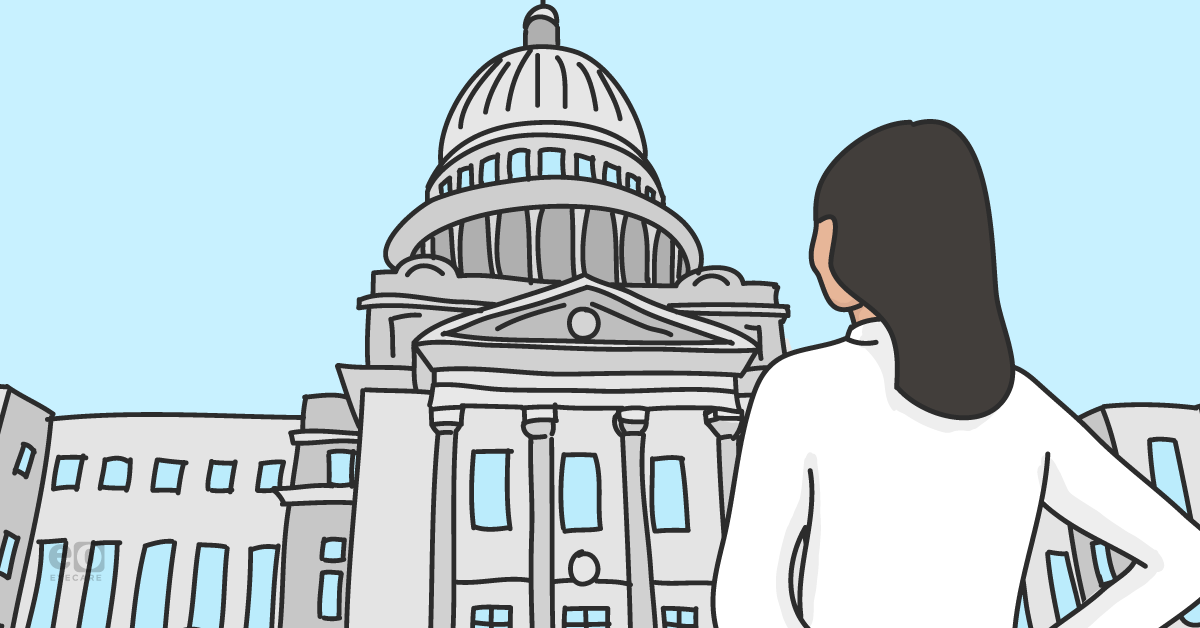Optometry’s Meeting (OM) is upon us! And while I’m stuck back at the office, writing at the hand of my own personal kryptonite (using all my paid time off [PTO] for travel), OM does have me reflecting on the importance of legislature within our profession and what we as new optometrists can do about it.
The importance of advocacy to optometry
With this thought in mind, our profession has fought long and hard to obtain the rights and privileges that we’ve come to know and appreciate today. The idea of “
scope battles” isn’t necessarily new. Past generations have had to fight for conveniences that we now sometimes take for granted, like the ability to dilate, prescribe oral medications (with the exception of oral steroids in some states), and treat glaucoma.
Optometric state associations and the
American Optometric Association (AOA) have always had their sights set on the future, even in an unprecedented and shifting landscape. It requires support and A LOT of it. And so, fellow colleagues, I write this article to share three ways that young ODs can contribute to a united front.
1. Join your AOA or local society and donate to the AOA-PAC.
If jury duty is our citizenly duty, joining your AOA and state association should be considered our professional one. The importance of a unified body of members with actual numbers and names goes a long way in shaping our profession. The AOA-PAC, or “political action committee,” uses donated funding to elect and re-elect pro-optometry candidates to the US Congress. Why does it matter?
Well, these bills we’re fighting for or against sometimes come down to a layperson’s personal experience with eyecare, or them having an optometrist as a father-in-law. Sure, we hope they vote for multiple reasons, but it’s our duty to educate them on how
different bills actually impact our profession, businesses, and the livelihood of their constituents (our patients).
AOA and state associations typically have prorated membership fees. There is little to no charge for the year of your graduation or residency, with incremental increases in each year of practice. A portion of your dues may even be tax deductible, making it an excellent incentive for both practice owners and associates.
2. Form a personal relationship with your House and Senate members.
Between inflation, the rising cost of private school education, and my previously mentioned kryptonite (aka travel), I can’t always financially prioritize donating to the political action committee. But what I can’t give financially, I try to make up for in time and personal relationships.
I recently attended the
North Carolina Optometric Society’s (NCOS) Legislative Day in Raleigh. Leading up to it, I wanted to familiarize myself with the legislators in my district. I went to our state website and found my legislators based on the zip code for each location I practiced. What I learned rather quickly is that some were former business owners or members of healthcare themselves!
I contacted as many as were available and scheduled meetings with two of my North Carolina senators and one from the North Carolina House of Representatives. At first, I was nervous that I wasn’t well-rehearsed or knowledgeable about the legislative process. But the NCOS team was so well-organized that we immediately hit the ground running with a discussion of the upcoming issues and what stance we, as optometrists, took on each issue.
When it was time to meet with our legislators, I joined Drs. Jamie Casper and Rasika Whitesell, who handled the difficult conversations with the greatest of ease. I realized that when it was my turn, all I needed to do was have an honest conversation about what challenges the bills posed to my practice and my patients.
Often when you discuss with legislators, they appreciate having a reference sheet. Next time, I plan to create a tear-off sheet with bullet points about which House or Senate bill to look out for and some key takeaways for each issue at hand.
3. Call and email when new anti-optometry bills are being voted on.
Now that you’ve established a relationship with your US and state senators and representatives use your voice! When bills are on the floor, it’s important to be proactive and have your voice heard—just make sure to do it in a professional way.
These days, it’s tempting to beeline to the media to address our social cause, but the best-intended messages can get twisted in miscommunication. Instead, if an unfavorable bill comes up in your respective state, speak directly to the state association’s President.
Our leaders are not sleeping—they are strategic! They’ve been down this road countless times and understand how optometrists should best address it. While the message is strongest coming from state and local constituents, it’s still important to
support your colleagues in other states.
I always check with those who have had direct communication with the state association's President and try my best to follow their lead. When speaking with legislative assistants, I keep it genuine by stating, “I’m concerned for my fellow colleagues who practice in your state…”
Conclusion
I LOVE practicing in North Carolina and am proud to be here. I chose to practice in NC, and I feel responsible for doing everything I can to keep us moving forward. I think being a good advocate for optometry starts within the exam room, but certainly extends far outside our practices.
It’s the fabric of who we are, how we give, and what we share. From time to money to education and care, we all can make a difference, even if it’s just in these three small ways.
